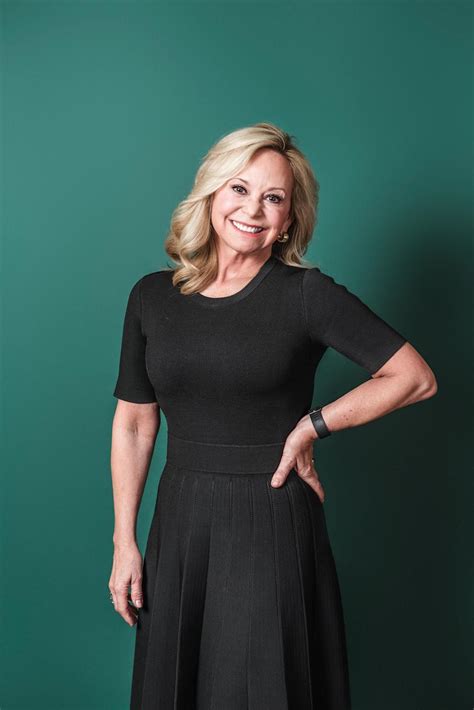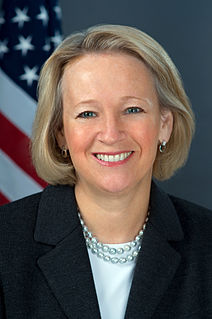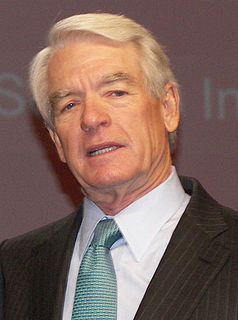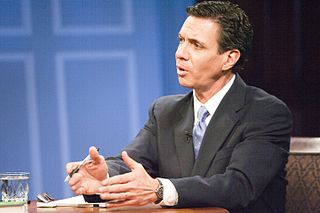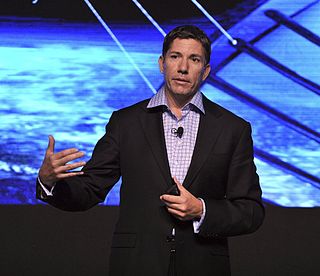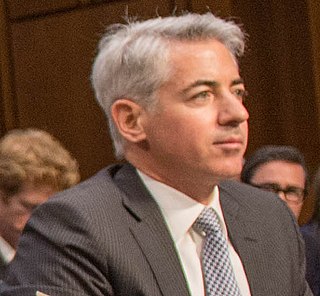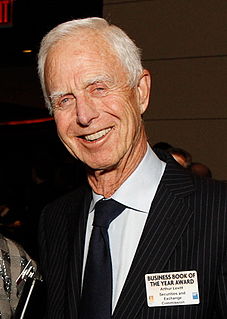Top 892 Investors Quotes & Sayings
Explore popular Investors quotes.
Last updated on December 3, 2024.
I believe that good investors are successful not because of their IQ, but because they have an investing discipline. But, what is more disciplined than a machine? A well-researched machine can make many average investors redundant, leaving behind only the really good human investors with exceptional intuition and skill.
There is not necessarily a good reason why a regulator should have to be involved in product design and marketing for rich and sophisticated investors. We recommend that such investors should be able to sign a piece of paper, which allows them to go ahead and buy unregulated products at their own risk.
Investors should be skeptical of history-based models. Constructed by a nerdy-sounding priesthood using esoteric terms such as beta, gamma, sigma and the like, these models tend to look impressive. Too often, though, investors forget to examine the assumptions behind the models. Beware of geeks bearing formulas.
I do not know whether the Government will be able to get ready to conduct this transaction together with the management of Rosneft itself, whether the appropriate strategic investors will be found. And I believe it is about such investors that we should talk. But we are getting ready, and it is in the current year that we are planning to do this.
You're talking to investors - and investors, they look at you and they realize, you know, not every business they invest in are the founders or the people running it going to have every bit of skill - and I think they looked at me and realized, OK, this is a guy who's got a lot - I'm much older than the usual run of people they fund.
I still believe that for good business analysts a concentrated portfolio is a good strategy combined with a long term horizon. Once again, the secret to success in following the formula strategy is patience, a quality in short supply for both professionals and individual investors alike. I think investors should have a large portion of their assets in equities over time.
Most investors are pretty smart. Yet most investors also remain heavily invested in actively managed stock funds. This is puzzling. The temptation, of course, is to dismiss these folks as ignorant fools. But I suspect these folks know the odds are stacked against them, and yet they are more than happy to take their chances.
Investors do not like losing money. They do not like companies that fail. They do not like entrepreneurs that fail. There is not a culture of celebrating failure in Silicon Valley or anyplace else. That is a myth. Recognize this, and if you start another business, get it to a successful point before approaching outside investors again.
Investors frequently benefit from making decisions with less than perfect knowledge and are well rewarded for bearing the risk of uncertainty. The time other investors spend delving into the last unanswered detail may cost them the chance to buy into situations at prices so low they offer a margin of safety despite the incomplete information
So smile when you read a headline that says "Investors lose as market falls." Edit it in your mind to "Disinvestors lose as market falls-but investors gain." Though writers often forget this truism, there is a buyer for every seller and what hurts one necessarily helps the other. (As they say in golf matches: "Every putt makes someone happy.")
Invest in low-turnover, passively managed index funds... and stay away from profit-driven investment management organizations... The mutual fund industry is a colossal failure... resulting from its systematic exploitation of individual investors... as funds extract enormous sums from investors in exchange for providing a shocking disservice... Excessive management fees take their toll, and manager profits dominate fiduciary responsibility.
Too often, investors are the target of fraudulent schemes disguised as investment opportunities. As you know, if the balance is tipped to the point where investors are not confident that there are appropriate protections, investors will lose confidence in our markets, and capital formation will ultimately be made more difficult and expensive.
Short-term performance envy causes many of the shortcomings that lock most investors into a perpetual cycle of underachievement. Watch your competitors not out of jealousy but out of respect and focus your efforts not on replicating others' portfolios but on looking for opportunities where they are not. The only way for investors to significantly outperform is to periodically stand far apart from the crowd, something few are willing, or able, to do.
There is a natural tendency for investors to devote a significant majority of their time to finding new ideas. After all, uncovering great companies selling at great prices is the lifeblood of successful investing. But in the never-ending quest for the next great idea, investors often give short shrift to their existing investments.
Millions of mutual-fund investors sleep well at night, serene in the belief that superior outcomes result from pooling funds with like-minded investors and engaging high-quality investment managers to provide professional insight. The conventional wisdom ends up hopelessly unwise, as evidence shows an overwhelming rate of failure by mutual funds to deliver on promises.
I believe that the behavior of too many of our corporations investment bankers and fund managers has jeopardized some of the trust that investors have had. It's not the economic engine that we need to focus on, but the need to make sure that our investors receive their fair share of the returns that that great economic system produces.
With joint-stock corporations, investors can place bets on the success of many different companies, without having to play a central management role in any one of them. This allows investors to diversify their financial holdings. It also allows them to capture profits on their investments, without having to get involved in the dirty, troublesome business of actually running a company.
A pin lies in wait for every bubble. And when the two eventually meet, a new wave of investors learns some very old lessons: First, many in Wall Street (a community in which quality control is not prized) will sell investors anything they will buy. Second, speculation is most dangerous when it looks easiest.
We want to encourage investors to target businesses that focus on achieving more than just profits - by placing their money into businesses that also positively contribute to social or environmental benefits in Ontario. Angel investors can help social enterprises grow and succeed, and through our partnership with the Network of Angel Organizations and the Impact Angel Alliance, we are making it easier for social ventures and angel investors to connect, contribute, and make our society a better place to live.
To value investors the concept of indexing is at best silly and at worst quite hazardous. Warren Buffett has observed that "in any sort of a contest - financial, mental or physical - it's an enormous advantage to have opponents who have been taught that it's useless to even try." I believe that over time value investors will outperform the market and that choosing to match it is both lazy and shortsighted.
State funds, private equity, venture capital, and institutional lending all have their role in the lifecycle of a high tech startup, but angel capital is crucial for first-time entrepreneurs. Angel investors provide more than just cash; they bring years of expertise as both founders of businesses and as seasoned investors.















